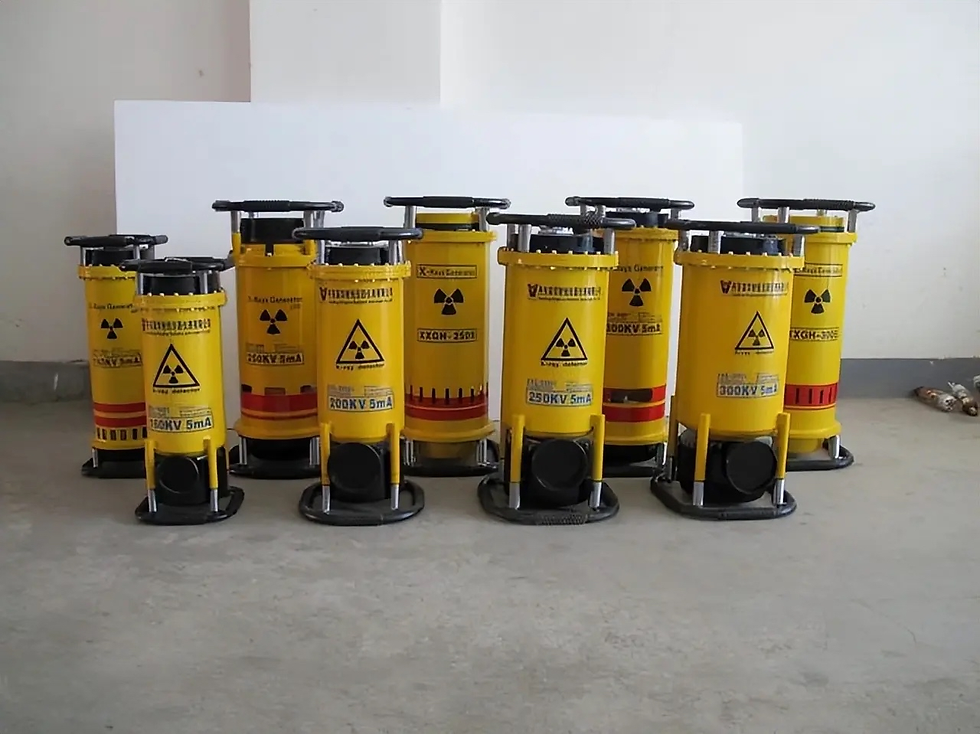Americans are panicking! Cesium-137 found in frozen shrimp, Walmart pulls them from shelves due to water pollution.
- CosDream News

- Aug 25, 2025
- 3 min read
The “radioactive shrimp scandal” has attracted widespread attention, especially in the United States, where millions of consumers panicked after Walmart's frozen shrimp were found to contain cesium-137.
This incident not only highlights issues with food safety but also raises broader concerns about the risks of nuclear contamination.

According to reports from the U.S. FDA, cesium-137 was detected in the frozen shrimp, although its radioactive levels were below intervention standards.
However, cesium-137 is fundamentally a nuclear fission byproduct, commonly found in environmental pollution from nuclear power plant accidents, nuclear tests, and other similar sources.
Once cesium-137 enters the human body, it releases beta (β) and gamma (γ) radiation, which can accumulate over time and potentially cause DNA damage, increasing the risk of cancer, leukemia, and other diseases.
Although the detected levels of radioactive material were low, the public's fear persisted due to cesium-137’s long-term accumulation property.
In response to the crisis, Walmart quickly pulled the affected products from shelves and offered customers unconditional refunds.

Despite this, the incident sparked widespread public skepticism, especially regarding whether food safety regulations are stringent enough.
Americans were outraged by the radioactive substances in their food, with some sarcastically suggesting that if the FDA believed the shrimp were harmless, they should have their own regulators eat them.
The public’s concerns extended beyond the contaminated frozen shrimp to a more general mistrust of imported seafood, especially in the context of the U.S. supporting the discharge of Japan’s Fukushima nuclear wastewater.
Another focal point of the issue was the source of cesium-137 in the frozen shrimp.
Although the contamination source was initially traced back to a processing plant in Indonesia, some experts speculated that it could be related to nuclear pollution in the Pacific region.

This is particularly concerning given Japan's decision after the Fukushima nuclear disaster to release treated nuclear wastewater into the sea, a move that received support from the U.S. government but has been controversial within the scientific community.
U.S. citizens began to worry that the radioactive wastewater discharged by Japan might cause radioactive substances to spread through the marine food chain, eventually entering the global food supply.
Although it has not been proven that the contamination is directly linked to the Fukushima wastewater discharge, many people have connected the two incidents, believing that the risks of nuclear contamination should not be underestimated.
Angry U.S. netizens argued that the government failed to fully consider the potential health threats to the public when it decided to support Japan’s wastewater discharge into the sea.

Walmart took swift action, demonstrating a certain level of responsibility.
However, the public's response to the incident has not fully subsided because this was just one batch of contaminated frozen shrimp, and consumers began to doubt other imported seafood that might not have been tested.
This could have long-term consequences for the U.S. retail, restaurant, and fishing industries.
The incident profoundly reflects that, in a globalized context, food safety is no longer an issue isolated to a single country.
The ocean is a shared global resource, and the discharge of one country’s nuclear wastewater could ultimately affect the health of consumers worldwide through the marine food chain.
This serves as a reminder that short-term “expedient measures” can lead to long-term risks, and global cooperation and stringent regulatory measures are key to ensuring food safety.
The “radioactive shrimp scandal” is not merely a food safety crisis, but it also reveals the cross-border impact of environmental pollution in the age of globalization.
While Walmart’s prompt response is a responsible action, addressing the issue thoroughly requires tracing it back to its source, particularly the need for a comprehensive review of international disputes like nuclear wastewater discharge.
Food safety is a shared global challenge, and only by establishing long-term safety mechanisms can we ensure that no harmful substances, like radioactive shrimp, make their way to anyone's dinner table.





Comments